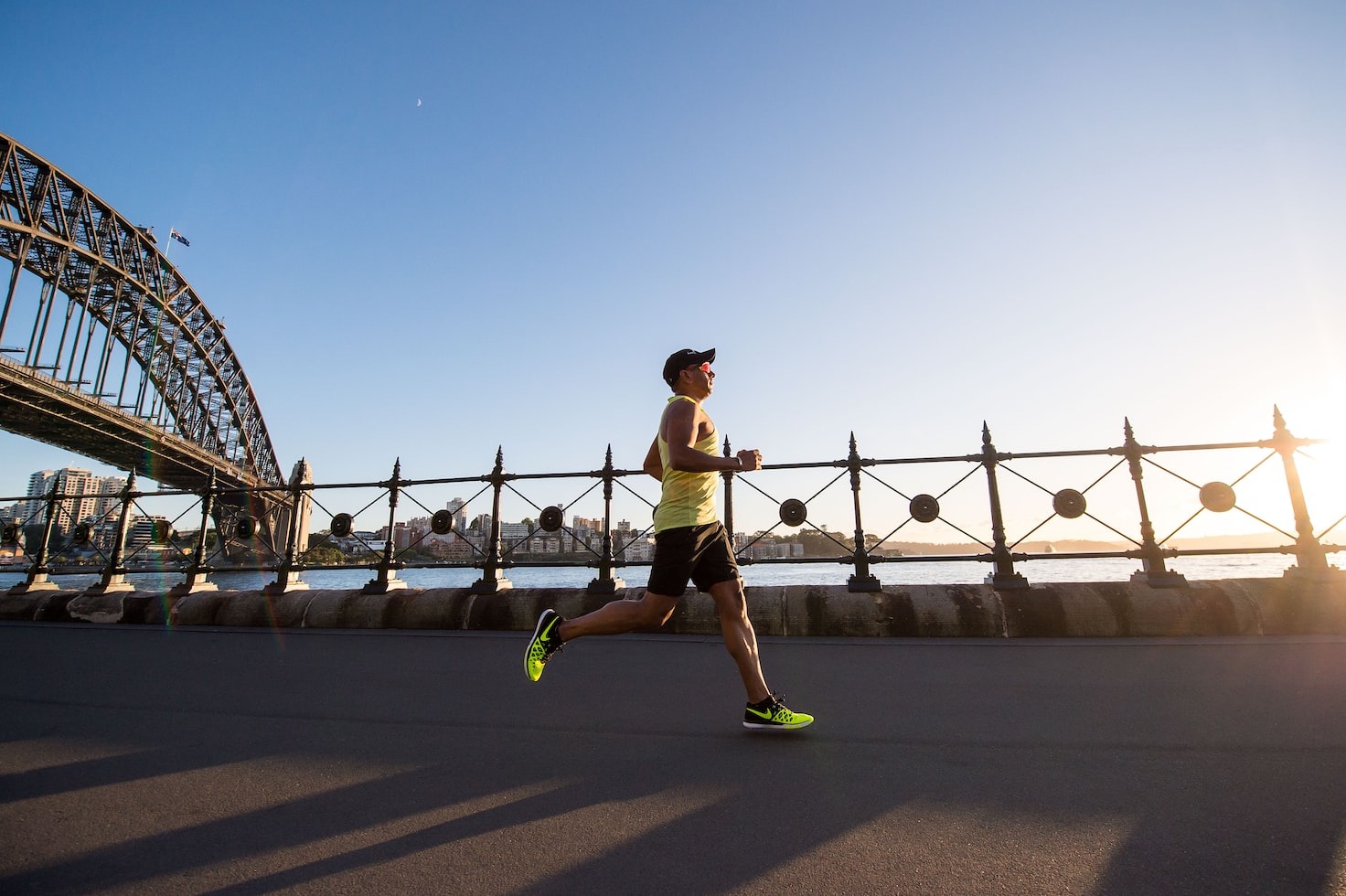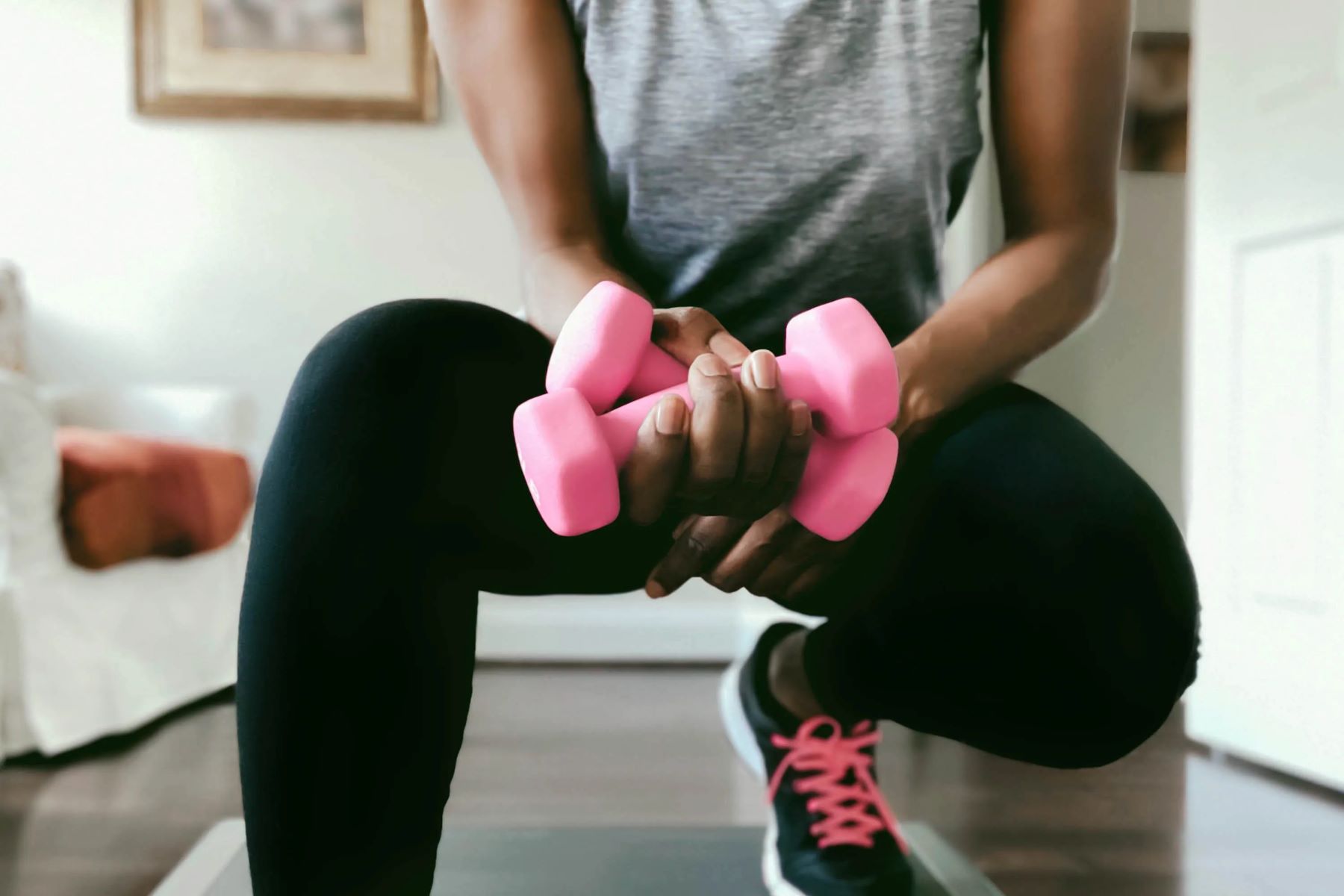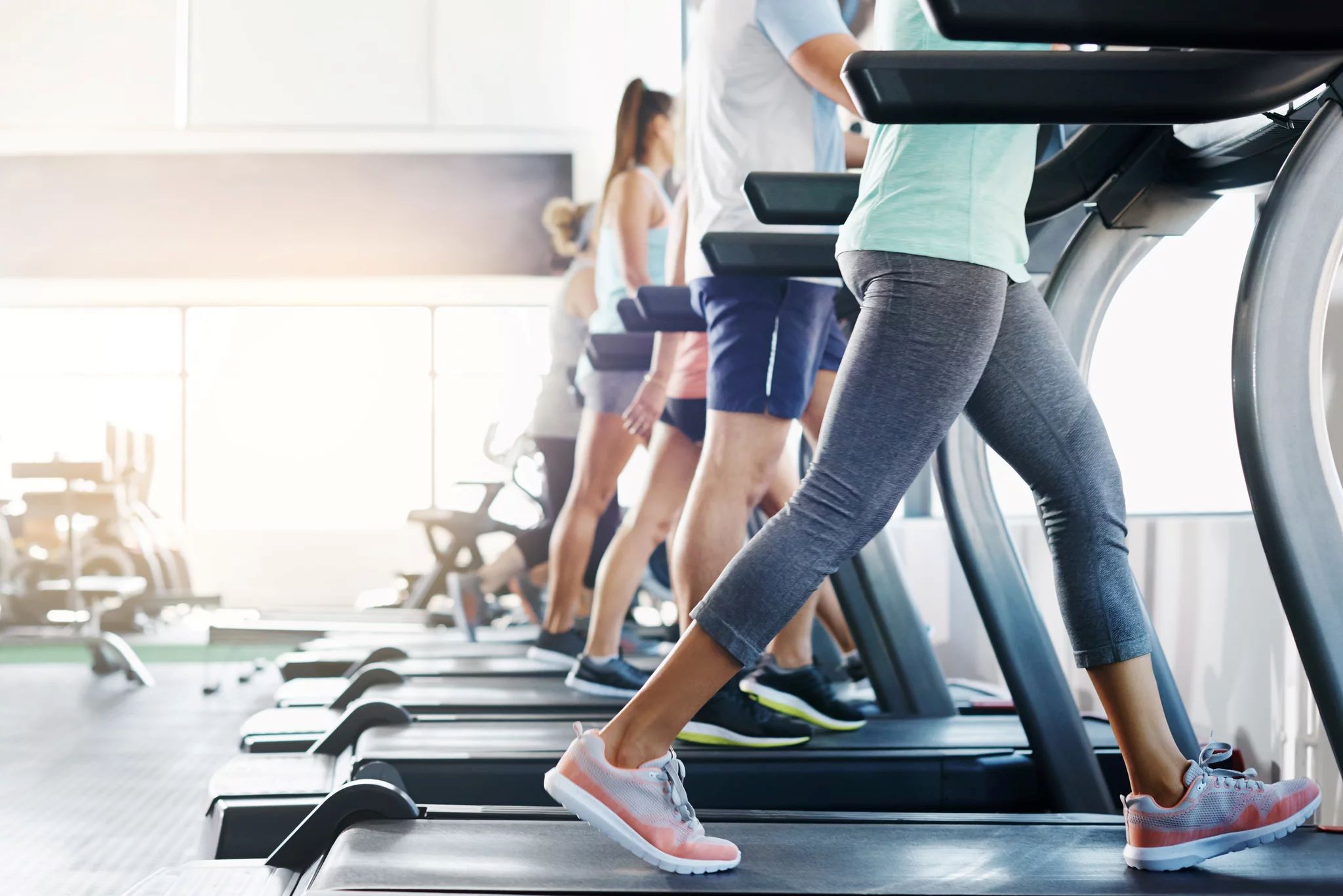

Featured
How Should You Feel After A Workout
Modified: January 2, 2024
Feeling accomplished and energized? Discover how you should feel after a featured workout and ensure you're on the right track to achieving your fitness goals.
Introduction
Exercise is an important part of a healthy lifestyle. Whether you’re hitting the gym, going for a run, or engaging in a yoga class, physical activity has numerous benefits for both the body and mind. However, after a workout, it’s common to experience various physical and psychological changes that can leave you wondering if what you’re feeling is normal or if something is wrong.
Understanding how you should feel after a workout is key to maximizing the benefits of your exercise routine and ensuring that you’re taking care of your overall well-being. While everybody is different and may have individual responses to exercise, there are some common indicators that can provide insight into how you should be feeling post-workout.
In this article, we will explore the physical, mental, and emotional states that you may experience after a workout, as well as other factors such as energy levels, muscle soreness, hydration, appetite, and sleep quality. By understanding and recognizing these indicators, you can assess the effectiveness of your workout routine and make adjustments as needed to optimize your fitness journey.
Physical Indicators
After a workout, there are certain physical indicators that can give you insights into the effectiveness of your exercise session. While these indicators may vary based on the intensity and duration of your workout, here are some common physical changes to look out for:
Increased Heart Rate: During exercise, your heart rate naturally increases to pump blood and deliver oxygen to your muscles. After a workout, it’s normal for your heart rate to remain elevated for a short period of time as your body recovers.
Elevated Body Temperature: Physical activity raises your body temperature as your muscles generate heat. This can lead to post-workout sweating and a feeling of warmth. It’s important to allow your body to cool down gradually to prevent sudden dizziness or discomfort.
Flushed Skin: Increased blood flow during exercise can cause your skin to appear flushed or reddish. This is a normal response and should subside as your body returns to its resting state.
Increased Respiration Rate: Breathing deeper and faster during exercise helps deliver oxygen to your muscles. After your workout, you may continue to experience a slightly elevated breathing rate as your body continues to recover.
Improved Blood Circulation: Regular exercise promotes better blood circulation in the body. After a workout, you may notice a sense of relaxation and improved circulation, which can manifest as a slight tingling or warm sensation in your extremities.
Flexibility and Range of Motion: Depending on the type of exercise you engage in, you may experience improved flexibility and range of motion. This can be particularly noticeable after activities like yoga or stretching routines, where you may feel more limber and agile.
Remember, these physical indicators can vary depending on factors such as your fitness level, the intensity of your workout, and any pre-existing conditions. It’s essential to listen to your body and consult with a healthcare professional if you have any concerns or experience unusual symptoms.
Mental and Emotional State
Exercise not only has a significant impact on your physical well-being but also plays a vital role in promoting mental and emotional health. After a workout, you may experience various changes in your mental and emotional state. Here are some common indicators to be aware of:
Improved Mood: Exercise releases endorphins, also known as the “feel-good” hormones, which can boost your mood and leave you feeling happier and more positive. You may notice a sense of euphoria or a general uplift in your spirits after a workout.
Reduced Stress and Anxiety: Engaging in physical activity can help reduce stress and anxiety levels. It provides an outlet to release tension and can leave you feeling calmer and more relaxed after a workout.
Better Focus and Mental Clarity: Exercise has been shown to improve cognitive function and enhance mental clarity. After a workout, you may feel sharper, more focused, and better equipped to tackle tasks or challenges.
Increased Self-Confidence: Achieving fitness goals and pushing past personal limits can significantly boost your self-confidence. After a workout, you may experience a sense of accomplishment and belief in your abilities.
Improved Sleep: Regular physical activity can help regulate sleep patterns and promote better quality sleep. You may find that after a workout, you experience deeper and more restful sleep, leading to increased energy and improved overall well-being.
Enhanced Body Image: Engaging in exercise can help improve body image and self-esteem. Over time, you may notice positive changes in your physique and feel more confident in your own skin.
It’s important to note that individual experiences may vary, and the effects of exercise on mental and emotional well-being can vary from person to person. It’s crucial to pay attention to your own emotional state and seek professional help if you’re experiencing persistent negative feelings or struggling with mental health concerns.
Energy Levels
One of the key benefits of regular exercise is increased energy levels. After a workout, you may experience changes in your energy levels that can provide valuable insights into the effectiveness of your exercise routine. Here are some indicators to consider:
Post-Workout Boost: It’s common to feel a surge of energy immediately after a workout. This is due to the release of endorphins and increased blood flow, which can leave you feeling invigorated and ready to take on the day.
Sustained Energy: Regular exercise has been shown to improve overall stamina and endurance, leading to increased energy levels throughout the day. You may find that you have more sustained energy and are better able to handle daily activities and tasks.
Reduced Fatigue: Engaging in physical activity can help combat feelings of fatigue and sluggishness. After a workout, you may notice a decrease in mental and physical fatigue, allowing you to stay focused and productive for longer periods of time.
Consistent Energy Levels: With regular exercise, you may experience more consistent energy levels throughout the day. This means fewer energy crashes and a more stable and balanced feeling of vitality.
Improved Alertness: Exercise has been shown to enhance alertness and mental sharpness. After a workout, you may feel more awake, alert, and ready to tackle tasks requiring focus and concentration.
Keep in mind that energy levels can also be influenced by factors such as sleep, nutrition, and overall health. It’s important to consider these factors in addition to your exercise routine to optimize your energy levels and overall well-being. If you find that your energy levels are consistently low or you experience extreme fatigue, it may be beneficial to consult with a healthcare professional for further evaluation.
Muscle Soreness
One common physical response to exercise is muscle soreness, also known as delayed onset muscle soreness (DOMS). After a workout, it’s normal to experience some degree of muscle soreness as a result of the stresses placed on the muscles. Here are some indicators to help you understand and manage muscle soreness:
Delayed Onset: Muscle soreness usually peaks 24 to 48 hours after a workout. This delayed onset is a normal part of the muscle repair process and indicates that your muscles are adapting to the demands of your exercise routine.
Localized Discomfort: You may experience muscle soreness in specific areas targeted during your workout. This discomfort is typically described as a dull ache or tightness and can vary in intensity depending on the type and intensity of the exercise performed.
Movement Limitations: Muscle soreness can temporarily limit your range of motion and make certain movements or activities more challenging. This is normal and usually improves as your muscles recover and adapt to the demands placed on them.
Reduced Strength: It’s common to experience a temporary decrease in strength and performance due to muscle soreness. While this may be frustrating, it’s important to give your body time to recover and rebuild before pushing yourself too hard.
Management Strategies: To manage muscle soreness, you can incorporate strategies such as gentle stretching, foam rolling, or taking a warm bath to help alleviate discomfort. Additionally, engaging in light physical activity and staying hydrated can promote blood flow and help reduce muscle soreness over time.
Listen to Your Body: It’s important to pay attention to your body and not push through severe pain or injury. While some level of discomfort is expected, if you experience sharp or intense pain that significantly impairs your ability to move or perform daily activities, it’s advised to seek medical advice.
Muscle soreness is a normal and temporary response to exercise, especially when introducing new activities or increasing the intensity of your workouts. With time, as your muscles adapt and become stronger, the intensity and duration of muscle soreness may decrease. However, if you continue to experience severe or prolonged muscle soreness, it may be beneficial to consult with a healthcare professional for further evaluation.
Hydration and Appetite
Proper hydration and nourishment play vital roles in supporting your body’s ability to recover and perform optimally after a workout. Here are some indicators to consider when it comes to hydration and appetite after exercise:
Increased Thirst: During a workout, your body loses fluids through sweat, and it’s essential to replenish those fluids afterward. Feeling thirsty is a sign that you need to drink more water or hydrating fluids to rehydrate your body.
Urine Color: Monitoring your urine color is a simple way to gauge your hydration status. Ideally, your urine should be pale yellow. If it’s darker, it may indicate dehydration and the need to increase your fluid intake.
Increased Appetite: Physical activity can increase your metabolic rate and stimulate your appetite. You may find that you feel hungrier after a workout. It’s important to listen to your body and provide it with the nourishment it needs to replenish energy stores and support muscle repair.
Cravings for Nutrient-dense Foods: After exercise, your body may naturally crave nutrient-dense foods to replenish glycogen stores and provide essential nutrients for recovery. Pay attention to these cravings and focus on consuming balanced meals that include protein, carbohydrates, and healthy fats.
Electrolyte Balance: Sweating during exercise not only leads to fluid loss but also results in the depletion of electrolytes such as sodium, potassium, and magnesium. Replenishing these electrolytes is crucial for maintaining proper muscle function and hydration levels. Consider consuming electrolyte-rich foods or beverages to restore electrolyte balance.
Stay Hydrated Throughout the Day: It’s important to maintain proper hydration not only immediately after exercise but also throughout the day. Aim to drink water or fluids regularly to ensure your body remains hydrated and supports optimal recovery.
Individual Hydration Needs: Everyone’s hydration needs are different, depending on factors such as the intensity and duration of your workout, climate, and individual factors. Pay attention to your body’s signals and adjust your fluid intake accordingly.
Remember that staying hydrated and properly nourished are ongoing processes, not just isolated to post-workout periods. By maintaining good hydration and nutrition habits, you can better support your overall fitness goals, performance, and well-being.
Sleep Quality
Sleep is a crucial element of overall health and well-being. Engaging in regular exercise can have a significant impact on your sleep quality. Here are some indicators to consider when evaluating your sleep quality after a workout:
Improved Sleep Duration: Regular exercise can help regulate your sleep-wake cycle and promote a more consistent sleep routine. After a workout, you may notice that you fall asleep faster and sleep for a longer duration than when you are sedentary.
Deeper and More Restful Sleep: Physical activity helps to relieve tension and reduce stress, allowing you to achieve a deeper and more restful sleep. You may wake up feeling refreshed, rejuvenated, and ready to tackle the day after a night of exercise-induced sleep.
Reduced Insomnia Symptoms: Exercise has been shown to alleviate symptoms of insomnia by decreasing the time it takes to fall asleep and reducing middle-of-the-night awakenings. If you struggle with insomnia, incorporating exercise into your routine may help improve your sleep quality.
Enhanced Sleep Efficiency: Regular physical activity can increase sleep efficiency, which refers to the amount of time you spend asleep in bed versus the time you spend awake. After a workout, you may notice that you spend less time tossing and turning and more time in restful slumber.
Regulated Circadian Rhythm: Exercise promotes the regulation of your body’s internal clock, known as the circadian rhythm. This can result in more consistent sleep patterns and a greater ability to fall asleep and wake up at desired times.
Avoid Late-Night Workouts: While exercise can be beneficial for sleep, it’s important to avoid exercising too close to bedtime. The increase in heart rate and body temperature during exercise can interfere with the body’s natural wind-down process, making it harder to fall asleep. Aim to finish your workout at least a few hours before bedtime.
Personalized Sleep Needs: Each individual has unique sleep requirements, and the impact of exercise on sleep quality may vary. Pay attention to how exercise affects your own sleep patterns and adjust your routine accordingly to optimize your sleep.
By incorporating exercise into your routine and paying attention to the quality of your sleep, you can enhance your overall well-being, energy levels, and performance during the day.
Overall Satisfaction
One important factor to consider after a workout is your overall satisfaction with the exercise session. While physical and physiological indicators provide valuable insights, it’s also essential to assess your subjective experience. Here are some indicators to help evaluate your overall satisfaction:
Sense of Accomplishment: After completing a workout, you may have a sense of accomplishment and pride in yourself for making the effort to prioritize your health and well-being. This feeling of achievement can contribute to your overall satisfaction.
Enjoyment and Engagement: Reflect on how engaged and present you felt during your workout. Did you enjoy the activities you engaged in? Finding enjoyment in your exercise routine is crucial for long-term adherence and overall satisfaction.
Progress and Improvement: Consider whether you are seeing progress and improvement in your fitness goals. Tracking factors such as increased strength, improved endurance, or achieving personal milestones can contribute to your satisfaction with your workout routine.
Mental Clarity and Emotional Well-being: Take note of how your exercise session affected your mental clarity and emotional well-being. Did it help you relieve stress or improve your mood? Feeling mentally and emotionally balanced after a workout can greatly impact your overall satisfaction.
Alignment with Personal Goals: Assess whether your exercise routine aligns with your personal goals and values. Whether it’s weight loss, muscle gain, increased flexibility, or overall fitness, feeling that your workout is contributing to your desired outcomes can increase your satisfaction.
Social Interaction: If your workout involved social interaction, such as group fitness classes or exercising with friends, evaluate how the social aspect influenced your satisfaction. Connecting with others during exercise can enhance enjoyment and motivation.
Reflection on Performance: Reflect on your performance during the workout. Did you push yourself to your desired level? Did you achieve your desired intensity or challenge yourself in new ways? Acknowledging your efforts and improvements can contribute to your overall satisfaction.
Your overall satisfaction with your workout routine is multi-faceted and unique to you. Remember that it’s important to find a balance between challenging yourself and enjoying the process. By focusing on your overall satisfaction, you can cultivate a positive mindset and enhance your exercise experience.
Conclusion
Understanding how you should feel after a workout can provide valuable insights into the effectiveness and impact of your exercise routine. The physical, mental, and emotional indicators discussed in this article can help you assess your post-workout state and make informed decisions to optimize your fitness journey.
Physically, you may experience increased heart rate and body temperature, improved blood circulation, flexibility, and range of motion. Muscle soreness is a common response to exercise, and understanding its nature and management strategies is crucial.
Mentally and emotionally, exercise can boost your mood, reduce stress and anxiety, enhance focus and mental clarity, increase self-confidence, and promote better sleep quality. Paying attention to these changes can help you harness the mental and emotional benefits of your workouts.
Monitoring your energy levels, hydration, appetite, and sleep quality also provides insights into the overall effectiveness of your exercise routine and helps you make adjustments to support your well-being.
Ultimately, your overall satisfaction with your workout routine is important. Assessing factors such as a sense of accomplishment, enjoyment, progress, and alignment with personal goals can contribute to your overall satisfaction level.
Remember, everyone’s experience after a workout may vary, and it’s important to listen to your body and make adjustments based on your individual needs and goals. If you have any concerns or experiences that seem unusual or concerning, don’t hesitate to consult with a healthcare professional for guidance.
By understanding how you should feel after a workout and paying attention to these indicators, you can optimize your fitness journey, ensure your well-being, and maximize the benefits of your exercise routine.









